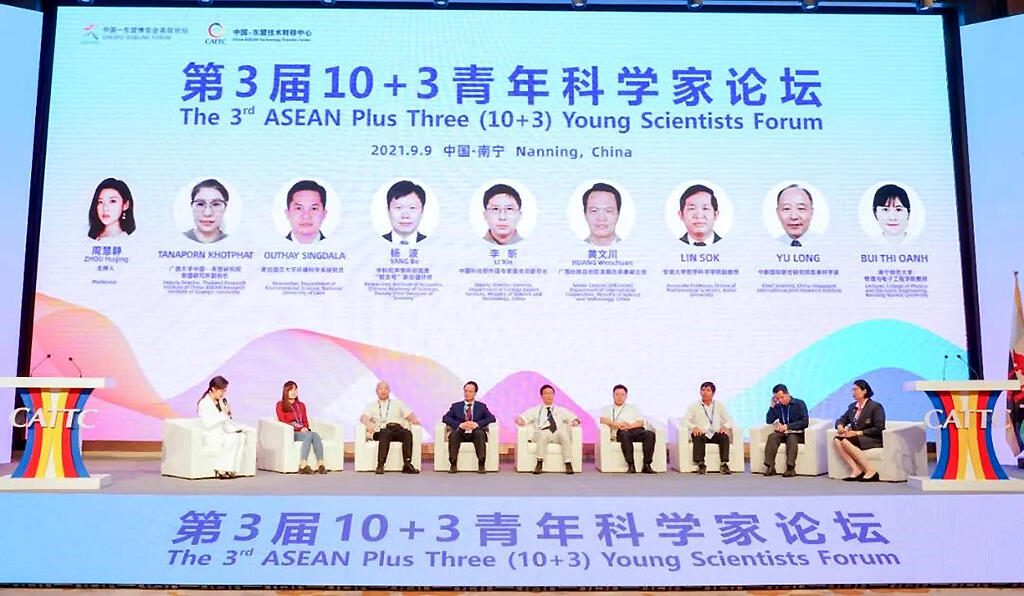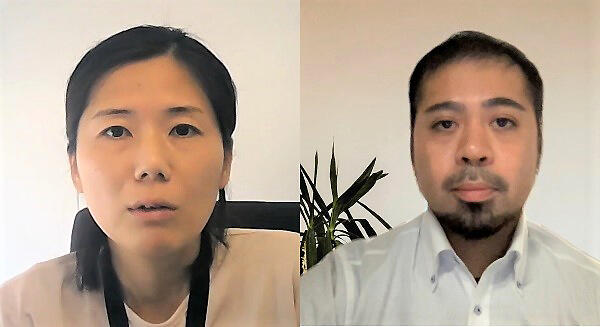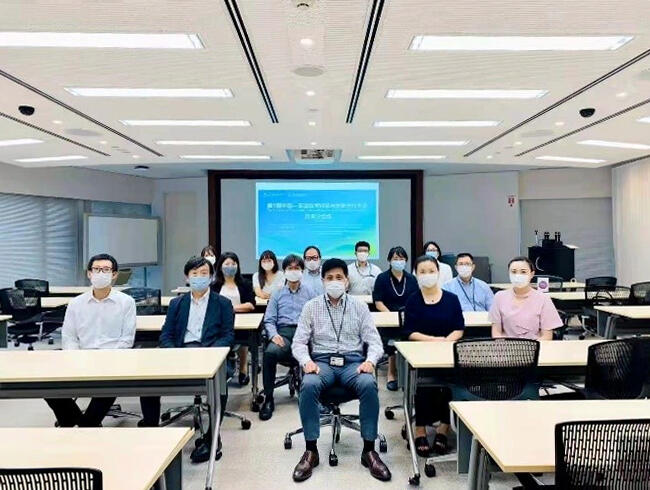The Third ASEAN Plus Three "10+3" Young Scientists Forum, which brings together young scientists from 13 countries, the ASEAN10, Japan, China, and South Korea, was held in Nanning City, Guangxi Province, China, on September 9, 2021. It was sponsored by the Chinese Ministry of Science and Technology and the Guangxi Zhuang Autonomous Regional Government.

(Provided by J.people.com.cn)
At this conference on the theme of "Promoting Sustainable Development in the Region with the Power of Young Researchers," a sub-venue for Japan, Korea, and Thailand was established for the first time, and the conference was held using a mix of offline venues and online methods. Following the opening remarks made by the representatives of the Chinese Ministry of Science and Technology and the Guangxi Zhuang Autonomous Region government, young researchers from countries such as China, Indonesia, Korea, Laos, Myanmar, the Philippines, and Japan gave research lectures on fields such as life science, materials, environment, and mechanical engineering.
As representatives of Japan, Dr. Miki Ebisuya, a group leader at a European Molecular Biology Laboratory in Barcelona, and Dr. Hiroto Higa, a member of Yokohama National University, participated in the workshop, which was held as an online conference. Dr. Ebisuya talked about a study to reproduce the mechanism of a human segmented clock using IPS cells, and Dr. Higa introduced an example of Sino-Japanese research cooperation on water treatment and marine environmental research.

(Provided by J.people.com.cn)
At this conference, the Chinese government indicated its intention to support the promotion of mutual understanding and joint research among young researchers from various countries by promoting more international personnel exchange projects in the future. Young researchers in each country described the importance of scientific and technological exchange and international cooperation in the field of research. Through this conference, further exchange and cooperation among universities, as well as more research institutes and researchers in Asia, will be promoted in the future, and it is expected that this will lead to the development of science and technology in the Asian region and the improvement of research standards in each country.

(Provided by J.people.com.cn)
This article has been translated by JST with permission from The Science News Ltd.(https://sci-news.co.jp/). Unauthorized reproduction of the article and photographs is prohibited.




